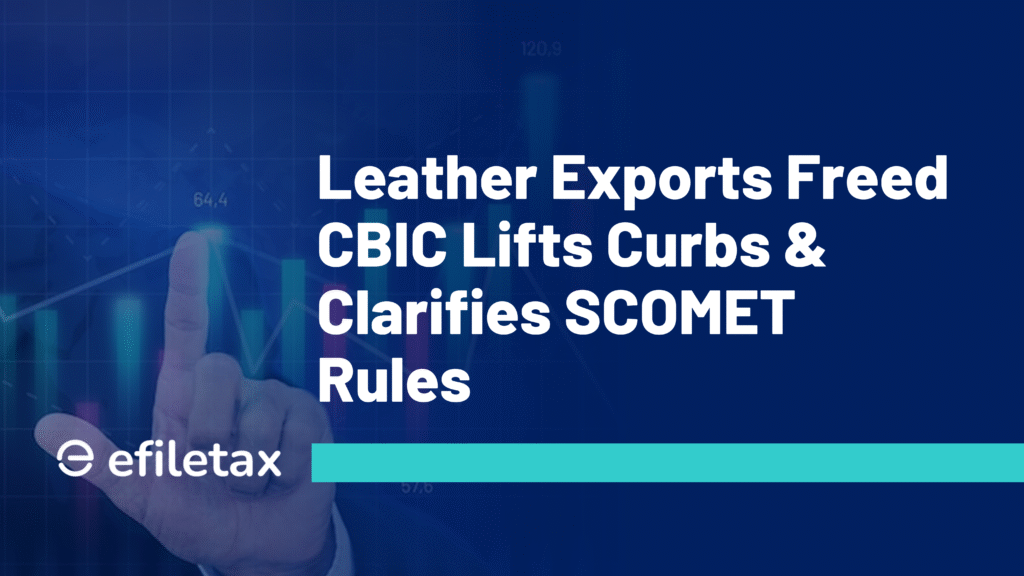
CBIC Lifts Export Curbs on Leather Key Clarification on SCOMET Policy
In a move welcomed by Indian exporters, the Central Board of Indirect Taxes and Customs (CBIC) has removed export restrictions on select leather products, easing trade barriers and clarifying policies related to SCOMET items.
The Directorate General of Foreign Trade (DGFT) has also issued a comprehensive SCOMET Clarification Repository, streamlining compliance under India’s export control regulations.
What Is the SCOMET List and Why It Matters?
SCOMET stands for Special Chemicals, Organisms, Materials, Equipment and Technologies. It is a list maintained under India’s Foreign Trade Policy, classifying sensitive items that require specific export authorization.
These typically include:
- Dual-use items (civilian and military use)
- Nuclear and missile-related technology
- Select chemicals and materials
Exporters dealing with SCOMET goods must obtain a No Objection Certificate (NOC) or a license from DGFT and MEA before shipping.
Key Changes Announced
1. Leather Export Restrictions Removed
- CBIC, through recent customs instructions, has clarified that certain leather products are no longer restricted under export policy.
- Exporters can now ship these items under the “Free” category, streamlining logistics and reducing documentation delays.
2. SCOMET Repository Made Public
- DGFT has launched a dedicated repository with all past SCOMET clarifications for industry reference.
- The move ensures:
- Greater transparency
- Ease of access for exporters and compliance officers
- Reduced errors in classification of goods
🔗 Access the Repository here: https://dgft.gov.in
Legal References and Notifications
- CBIC Customs Instruction: Refer official CBIC portal for notification details on leather product liberalisation
- DGFT Notification on SCOMET Clarification Repository: Issued under Policy Circular No. 2/2025-26, dated May 2025
- Export Control Regulations: Chapter 5 of India’s Foreign Trade Policy 2023–28
Expert View: Stay Ahead with Classification Checks
Tax and trade experts recommend exporters regularly verify their product classifications, especially if dealing with semi-finished leather or mixed material goods. Misclassification under SCOMET may result in:
- Shipment seizure
- Export license suspension
- Penal actions under FTDR Act
✔️ Efiletax Tip: Use DGFT’s HSN-based SCOMET mapping tool to pre-check export eligibility and avoid delays.
How Does This Help Indian Exporters?
- Boosts MSME leather units who rely on quick turnaround
- Reduces compliance friction
- Aligns with India’s export ease of doing business policy
Summary
CBIC removes export restrictions on leather products, easing trade for MSMEs. DGFT issues a public SCOMET clarification repository to improve policy transparency and compliance ease.
FAQs on CBIC Leather Export Update
Q1. Is an export license still required for finished leather goods?
A: Not anymore for specified products. Confirm through latest CBIC instruction or consult Efiletax.
Q2. Where can I access past SCOMET clarifications?
A: Visit DGFT’s official SCOMET clarification page.
Q3. What happens if I wrongly export a SCOMET item?
A: You may face penalties or shipment seizure. Always verify classification.
Final Note
This policy shift is part of India’s broader strategy to enhance non-POL exports and remove redundant trade barriers. Whether you’re exporting leather belts, footwear, or chemical compounds — compliance is key.